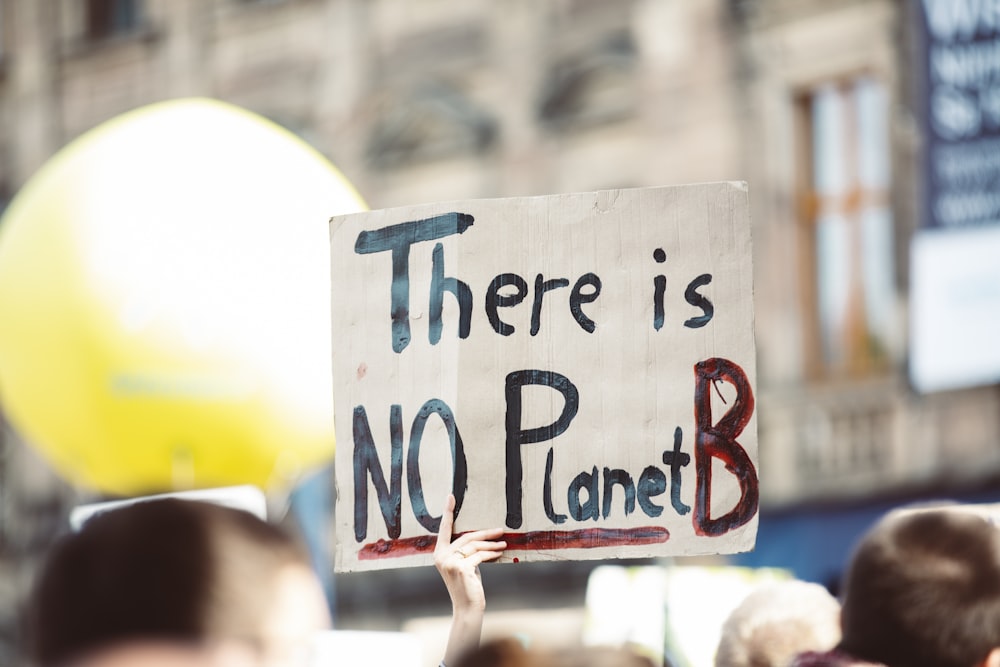A survey in 2018 found that 70% of people in the US are worried about climate change, and 51% report feeling “helpless”.
Global attention has been dedicated to the large-scale, tangible impacts of climate change. But on an individual level, many of us are experiencing increased feelings of distress and despair. We don’t know why we feel unsettled, despondent or tense. We just know that on some days our emotions are all over the place, and on other days everything seems to be okay.
Water shortages, food security, heatwaves and dust storms. These are just some of the more familiar faces of climate change that we experience in the MENA region. And when we frame our emotional state in context to these uncertainties, we can easily understand why we are feeling so vulnerable from one day to the next.
So How Does Climate Change Affect Our Mental Well-Being?
The impact of Eco-Anxiety on our psychological well-being can range from stress to anxiety, and even depression. It is characterised by fear, frustration, deep sadness, disappointment and emotional fatigue. And it can influence our daily behaviours to the point where we have trouble sleeping, act out aggressively or abruptly, or experience moments of panic.

Over time, these subtle changes in our behaviour become progressively worse the more we go down the climate change rabbit hole. And we may find ourselves struggling to relate and connect to those around us – or even lose our sense of purpose and direction in life.
(Listen to the Egyptian born, London raised freelance journalist and the bestselling author of The Greater Freedom: Life as a Middle Eastern Woman Outside the Stereotypes on EP07 with Alya Mooro, and Ally Salama on Empathy Always Wins Podcast. On this episode Alya shares her story breaking the stereotype of being a traditional “Middle Eastern” woman thriving on a global scale.)
What Can We Do To Overcome These Effects?
Eco-Anxiety is multi-faceted, which means we need a dynamic approach that can adapt to our personal needs. Whilst cognitive behavioural therapy and hypnotherapy have been successful in treating anxiety, they do not take into account the many other factors and expressions relating to Eco-Anxiety.
Moreover, for many of us, our access to basic mental healthcare comes with its own socio-economic challenges. So what can we do to change our lifestyle? How can we become more resilient in the face of Eco- Anxiety?
Click to Listen to our #1 Charting Podcast on Apple & The World’s Exclusive Youth Leadership Podcast, Empathy Always Wins by EMPWR, Out Now Everywhere on Apple / Spotify / Google Podcasts 🌍
Get Active
At the heart of anxiety, and depression, lies self- confidence. And one of the best ways to improve our confidence is to regularly engage in physical activity. Taking up a sport, exercising, or even light walking are simple ways to increase our physical fitness. During physical activity our bodies release mood-enhancing hormones (endorphins) which help us cope with psychological discomfort and boosts brainpower.
Connect with Nature
To counter-act the maelstrom of negative climate headlines, we can dedicate time to connecting with nature. Nature walks, picnics and outdoor activities are fun ways to bring nature into our daily lives. Whilst gardening, or even nurturing a pot plant, make an easy alternative for those stuck in the city grind. Not only does interacting with nature have calming effects on the mind but it also increases our sense of security.
More Fresh Produce
We tend to approach eating as a hand-to-mouth exercise. But when we pay attention to how our food choices influence our moods, we can make informed decisions regarding our mental health. Research has shown that adding more fresh fruits and vegetables to our diet encourages feelings of happiness and well- being.
Human Connection
Humanity has always thrived upon social connections. And fostering relationships with people we trust, and share similar values with, helps us to maintain our mental well-being. Human interaction improves our experience of happiness, alleviates stress and anxiety, and increases our self-confidence. We can strengthen our connectedness by tapping into existing networks like family and friends. Or we can seek out new communities centred around shared interests.
💭If you like this article, subscribe here to our EMPWR Guide and be first to receive all our articles, the latest mental health news in the Arab world and more exciting stuff every Sunday directly to your inbox.
Be sure to check out and join our global conversation around mental health on the EMPWR Facebook Community Group: “The Empower Community”
💭Heads Up!
Are you a mental health professional or know someone who would like to be interviewed by EMPWR MAG? Contact Us with their info and an EMPWR Rep should reach out to them!
💥Freelance Submissions & Art/Poetry are accepted here (All Articles Must Comply with EMPWR’s Writing Guidelines )








